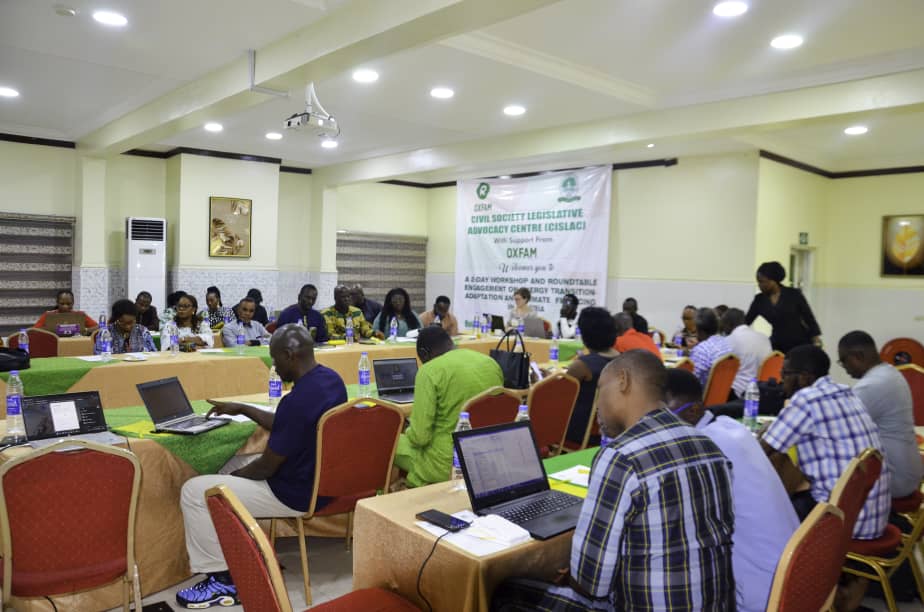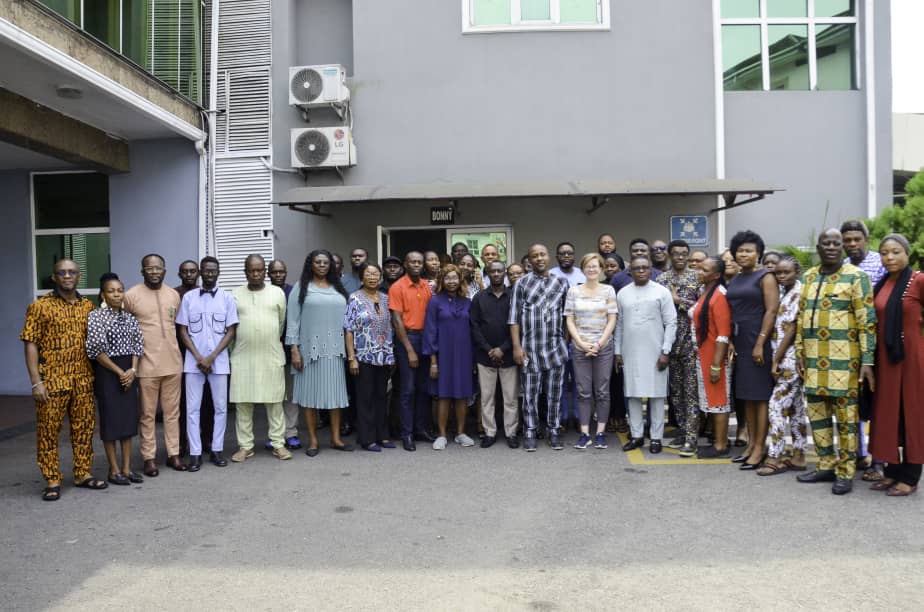By Tina Amanda
As Nigeria advances its energy transition agenda, civil society organizations (CSOs) have been called upon to strengthen advocacy networks that demand accountability, transparency, and inclusivity in the sector.
Despite its crucial role in the nation’s economy, Nigeria’s energy sector faces persistent challenges, including inefficiency, secrecy, and corrupt practices.
At a two-day workshop on energy transition and climate financing in Nigeria, organized by the Civil Society Legislative Advocacy Centre (CISLAC) with support from Oxfam Nigeria in Port Harcourt, Auwal Musa, Executive Director of CISLAC, emphasized the need for transparency in Nigeria’s energy transition.
Musa, represented by Ayo Omowu, CISLAC’s Senior Program Officer for Taxation Justice, Environment, and Conservation of Nature, stressed that an open and accountable governance framework is necessary to ensure equitable distribution of the benefits of energy transition.
“Our nation stands at a critical juncture where the global shift towards sustainable energy presents both significant opportunities and formidable challenges. We want to ensure that Nigeria’s energy transition is not only sustainable but also transparent and inclusive, benefiting all citizens. Let us make a lasting impact on our nation’s future,” he said.
He urged CSOs to monitor policy implementation and projects within the energy sector while carrying out sensitization campaigns in local communities.
“CSOs can provide independent assessments and highlight areas requiring attention. Awareness campaigns through community engagement and public education can raise consciousness about the importance of sustainable energy and the need for transparency in its implementation.”
Dr. Chikanele Asuru, Associate Professor of Development Economics and Head of the Department of Petroleum Economics and Policy Studies at Ajuru University of Education, highlighted the role of energy transition in achieving Sustainable Development Goal (SDG) 7.
She noted that gas would play a critical role as a transition fuel in Nigeria’s net-zero pathway, particularly in the power and cooking sectors.

“Nigeria’s energy transition creates significant investment opportunities, including the establishment and expansion of industries related to solar energy, hydrogen, and electric vehicles. Energy transition will present different risks and opportunities depending on the type and scale of energy resources used.
“This is why CSOs and NGOs are critical in implementing and monitoring the Energy Transition Plan (ETP),” Asuru said.
She projected that Nigeria’s net-zero pathway would create up to 340,000 jobs by 2030 and 840,000 jobs by 2060, primarily in the power, cooking, and transport sectors.
Presenting a paper on “Understanding Nigeria’s Gas Plans: Innovative Financing, Opportunities, and Risks,” Harry Udoh, pointed out Nigeria’s vast gas potential.
“As of January 2024, Nigeria’s proven oil reserves stood at 37 billion barrels, making it the second-largest in Africa and the tenth-largest globally. However, a U.S. Geological Survey estimates Nigeria’s gas reserves could be as high as 600 trillion cubic feet (tcf).”
Udoh identified several opportunities within Nigeria’s gas sector, including electricity generation, industrialization, domestic market expansion, global LNG supply, gas infrastructure development, and job creation.
Dumnamene Fyneface, Executive Director of the Youths and Environmental Advocacy Centre (YEAC-Nigeria), shared his organization’s efforts in promoting renewable energy.
He highlighted the establishment of the YEAC Community Energy and Development (YEAC-CEAD) initiative, which has set up a solar mini-grid electricity facility to combat climate change, mitigate crude oil theft, and reduce environmental pollution.
At the conclusion of the workshop, a communiqué was issued with the following recommendations: “Development partners should establish a national platform, the Energy Transition Coalition, to advocate for a just and balanced energy transition.

“Increased utilization of gas should drive industrialization, economic growth, and sustainable development. Transparency and accountability mechanisms, including an open contracting system for gas infrastructure and distribution, should be strengthened.
“The government, private sector, and CSOs should adopt a global perspective while ensuring local actions align with national socioeconomic interests. Gas should be made accessible and affordable to support economic growth.
“CSOs should engage in effective monitoring and evaluation of the energy transition value chain.”
The workshop drew participants from CSOs, community stakeholders, government agencies, the private sector, academia, women’s groups, and the media.
A participant, Dumnamene Fyneface, Executive Director of the Youths and Environmental Advocacy Centre (YEAC-Nigeria), shared that his organization actively promotes renewable energy by establishing the YEAC Community Energy and Development (YEAC-CEAD). He noted that they have set up a solar mini-grid facility to combat climate change, mitigate crude oil theft, and reduce environmental pollution through clean energy initiatives.
At the end of the workshop, a communiqué recommended the following actions:
- Development partners should establish a national platform, the Energy Transition Coalition, to advocate for a just and inclusive energy transition.
- Increased gas utilization to drive industrialization, economic growth, and sustainable development.
- Strengthened transparency and accountability in the gas sector, including an open contracting system for gas infrastructure and distribution.
- Government, private sector, and CSOs should adopt a “think global, act local” approach to avoid negative socio-economic disruptions.
- Gas should be made accessible and affordable to support economic growth.
- CSOs should engage in rigorous monitoring and evaluation of the energy transition value chain.
The workshop drew participants from CSOs, community stakeholders, government agencies, the private sector, academia, women’s groups, and the media.




